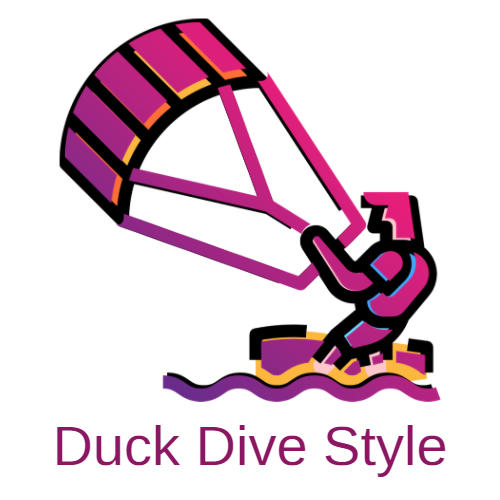
Introduction: Turning Passion into Profession
Many people dream of turning their hobbies into careers, and for those with a love for the ocean and a knack for riding the waves, a professional surfing career might seem like the perfect path. But what does it really mean to be a professional surfer? Let’s dive into the allure and reality of this exciting profession.
- The allure of a surfing career
Imagine waking up every day to the sound of the ocean, grabbing your surfboard, and hitting the waves. This is the life of a professional surfer, and it’s easy to see why it’s so appealing. Not only do you get to do what you love every day, but you also get to travel the world, compete in high-stakes competitions, and potentially earn a living from sponsorships and prize money. Plus, there’s the added bonus of being part of a close-knit community of surfers who share your passion.
- The reality of professional surfing
While the surfing lifestyle can be incredibly rewarding, it’s not all sunshine and easy rides. Becoming a professional surfer requires years of practice, dedication, and physical fitness. The competition is fierce, and only a small percentage of surfers ever make it to the professional level. Even then, the income can be unpredictable, and the physical demands of the sport can take a toll on your body. Despite these challenges, many surfers find the thrill of riding the waves and the camaraderie of the surfing community to be worth the effort.
So, if you’re ready to take your passion for surfing to the next level, read on to learn more about what it takes to build a successful surfing career.
Understanding the Surfing Profession
Surfing is not just a hobby or a sport, it’s a profession that demands passion, dedication, and a deep understanding of the ocean. Let’s dive into the role of a professional surfer.
The Role of a Professional Surfer
A professional surfer has various responsibilities that extend beyond just riding the waves. Here are some of the key roles a professional surfer plays:
- Competing in Surfing Events: The primary role of a professional surfer is to compete in surfing events. These events can be local, national, or international. Surfers must maintain their physical fitness and continuously improve their surfing skills to perform well in these competitions. The World Surf League is one of the most prestigious surfing events where professional surfers from around the world compete.
- Endorsements and Sponsorships: Professional surfers often receive endorsements and sponsorships from various brands. These partnerships not only provide financial support to the surfers but also help in promoting the sport. Brands may provide surfers with equipment, clothing, or financial backing in exchange for their promotion. Surfers might appear in advertisements, participate in promotional events, or use their social media platforms to promote the brands they are associated with.
Being a professional surfer is not just about catching the perfect wave, it’s about embodying the spirit of the sport and inspiring others to do the same. It’s about dedication, hard work, and a constant pursuit of excellence.
The Surfing Industry
The surfing industry is a vibrant and dynamic sector, contributing significantly to the global economy. It’s not just about the thrill of riding waves, but also about the businesses and careers it supports.
- Overview of the Surfing Industry
- Surfing Industry Careers Beyond Being a Professional Surfer
The surfing industry is a multi-billion dollar industry that spans across the globe. According to Wikipedia, the global surfing market was valued at around $9.5 billion in 2020. The industry includes not only the sport itself but also related products like surfboards, apparel, and accessories, as well as services like surf schools and tours.
Becoming a professional surfer is just one way to make a career in the surfing industry. There are many other roles that support the industry and allow individuals to pursue their passion for surfing. These include jobs in surfboard manufacturing, surf coaching, surf tourism, and even roles in marketing and event management for surfing events. For example, surfboard shapers and designers play a crucial role in the industry, creating the tools that surfers use to ride the waves. Similarly, surf coaches and instructors help beginners learn the sport and improve their skills.
In conclusion, the surfing industry offers a wide range of career opportunities beyond being a professional surfer. Whether you’re passionate about the sport itself, or interested in the business side of things, there’s likely a role for you in this exciting industry.
Starting Your Surfing Career
Embarking on a surfing career is a thrilling journey. It requires dedication, passion, and a lot of practice. Let’s dive into how you can develop your skills to start your surfing career.
Developing Your Skills
Having a solid foundation of skills is crucial for any aspiring surfer. Here are the two key areas you should focus on:
- Mastering the basics of surfing
- Training for competitive surfing
Before you can ride the big waves, you need to master the basics. This includes understanding the ocean, learning how to paddle, standing up on the board, and maintaining balance. It’s important to be comfortable with these skills before moving on to more advanced techniques. You can learn these basics by taking lessons from a surf school or hiring a private coach.
Once you’ve mastered the basics, it’s time to train for competitive surfing. This involves improving your physical fitness, learning advanced surfing techniques, and understanding the rules of competitive surfing. Regular practice and participation in local surfing competitions can help you gain experience and improve your skills.
Remember, becoming a professional surfer doesn’t happen overnight. It requires patience, perseverance, and a love for the sport. So, start your journey today and ride the waves to success!
Finding Opportunities
Once you’ve honed your surfing skills, the next step is to find opportunities to showcase your talent and make a name for yourself. There are two main ways to do this: entering surfing competitions and networking in the surfing industry.
- Entering Surfing Competitions
Surfing competitions are a great way to get noticed and start building your professional surfing career. They provide a platform to showcase your skills, compete with other talented surfers, and get noticed by sponsors and industry professionals.
There are many surfing competitions around the world, from local contests to international championships. For example, the World Surf League hosts numerous events each year, attracting the best surfers from around the globe.
Entering these competitions requires dedication, training, and a competitive spirit. But the rewards can be great, including prize money, sponsorship deals, and the chance to travel the world.
- Networking in the Surfing Industry
Networking is another crucial aspect of building a successful surfing career. This involves making connections with other surfers, coaches, sponsors, and industry professionals. These connections can open doors to opportunities that might not be available otherwise.
Networking can be done in many ways. You can attend surfing events, join surfing clubs, participate in online surfing communities, and use social media to connect with people in the industry. Remember, the surfing community is a tight-knit group, and making the right connections can go a long way in helping you succeed.
In conclusion, finding opportunities in the surfing industry involves both showcasing your skills in competitions and building connections through networking. Both are essential steps in turning your passion for surfing into a professional career.
Building a Successful Surfing Career
As you embark on your journey to build a successful surfing career, it’s crucial to pay attention to two key aspects – physical and mental fitness. These elements play a significant role in your performance and overall success in the surfing world.
Maintaining Physical and Mental Fitness
Physical and mental fitness are like two sides of the same coin. Both are equally important for a successful surfing career. Let’s delve deeper into these aspects.
- The importance of physical conditioning in surfing
- Managing stress and maintaining mental health
Physical conditioning is the backbone of any sport, and surfing is no exception. It’s not just about riding the waves; it’s about having the strength, endurance, and flexibility to do so. A well-conditioned body can withstand the physical demands of surfing, such as paddling against strong currents, maintaining balance on the board, and executing complex maneuvers. Regular workouts, including cardio exercises, strength training, and flexibility exercises, can help enhance your physical conditioning. According to a Wikipedia article, professional surfers often follow a rigorous fitness regime to stay in top shape.
Surfing is not just a physical game; it’s a mental one too. The pressure to perform, fear of big waves, or even the stress of competitions can take a toll on your mental health. It’s essential to manage this stress effectively to maintain your mental well-being. Techniques like meditation, yoga, and mindfulness can help manage stress and enhance mental health. Remember, a healthy mind can lead to better decision-making, improved focus, and increased resilience, all of which are crucial for a successful surfing career.
In conclusion, building a successful surfing career goes beyond just mastering the art of riding waves. It involves maintaining a balance between physical conditioning and mental health. So, as you ride the waves to success, don’t forget to take care of your body and mind.
Marketing Yourself as a Surfer
As a surfer, it’s not just about riding the waves. You also need to know how to market yourself. This involves building a personal brand and securing sponsorships and endorsements. Let’s dive into these two key areas.
- Building a Personal Brand
Building a personal brand is like creating a unique identity. It’s about showing the world who you are, what you stand for, and why you’re different from other surfers. Your personal brand is your reputation. It’s what people think of when they hear your name. It’s your story, your style, your values, and your skills all wrapped up into one package.
One way to build your personal brand is through social media. You can share photos and videos of your surfing adventures, post about your training routines, and engage with your followers. You can also create a website to showcase your achievements, share your surfing philosophy, and sell merchandise. Remember, your brand should reflect your personality and your passion for surfing.
- Securing Sponsorships and Endorsements
Securing sponsorships and endorsements is another important aspect of marketing yourself as a surfer. These partnerships can provide financial support, free gear, and exposure to a wider audience. But how do you attract sponsors and endorsers?
First, you need to prove that you’re a valuable asset. This means showing that you’re not only a talented surfer, but also a positive role model and a powerful influencer. You can do this by winning competitions, building a strong social media presence, and demonstrating your commitment to the sport and the surfing community.
Second, you need to research potential sponsors and endorsers. Find out what they’re looking for in a surfer and how you can meet their needs. Then, prepare a compelling proposal that highlights your strengths, your achievements, and your potential.
Remember, marketing yourself as a surfer is a journey. It takes time, effort, and persistence. But with the right strategy, you can build a successful surfing career and make a big splash in the surfing world.
Case Studies: Successful Professional Surfers
Let’s take a look at some real-life examples of individuals who have turned their passion for surfing into successful careers.
Case Study 1: Kelly Slater – A Surfer Who Turned Their Passion into a Successful Career
 Kelly Slater is a prime example of someone who has turned their love for surfing into a successful career. Born in Florida, Slater began surfing at a young age and quickly showed immense talent. He turned professional at the age of 18 and has since become one of the most successful surfers in history, winning a record 11 World Surf League Championships. Slater’s success is a testament to the fact that with passion, dedication, and hard work, it’s possible to turn a love for surfing into a rewarding career. Learn more about Kelly Slater’s career here.
Kelly Slater is a prime example of someone who has turned their love for surfing into a successful career. Born in Florida, Slater began surfing at a young age and quickly showed immense talent. He turned professional at the age of 18 and has since become one of the most successful surfers in history, winning a record 11 World Surf League Championships. Slater’s success is a testament to the fact that with passion, dedication, and hard work, it’s possible to turn a love for surfing into a rewarding career. Learn more about Kelly Slater’s career here.Case Study 2: Rob Machado – A Surfer Who Transitioned into a Different Career within the Surfing Industry
 Rob Machado, another well-known name in the surfing world, has successfully transitioned from professional surfing to other roles within the industry. After a successful career as a pro surfer, Machado has since become a surfing ambassador, environmental activist, and film producer. He has used his fame and influence to promote environmental causes and inspire the next generation of surfers. This shows that even if you decide to step away from professional surfing, there are still many ways to stay involved in the industry and make a difference. Learn more about Rob Machado’s career here.
Rob Machado, another well-known name in the surfing world, has successfully transitioned from professional surfing to other roles within the industry. After a successful career as a pro surfer, Machado has since become a surfing ambassador, environmental activist, and film producer. He has used his fame and influence to promote environmental causes and inspire the next generation of surfers. This shows that even if you decide to step away from professional surfing, there are still many ways to stay involved in the industry and make a difference. Learn more about Rob Machado’s career here.
These case studies illustrate that there are many paths to success within the surfing industry. Whether you aspire to become a professional surfer or work in other areas of the industry, the key is to follow your passion and never stop learning.
Conclusion: Riding the Waves to Success
As we conclude our journey through the world of professional surfing, it’s time to reflect on the key insights we’ve gathered. The path to becoming a successful surfer may be filled with challenges, but the rewards are worth the effort. Let’s revisit some of the main takeaways and encouragement for those considering a career in this exciting field.
- Key takeaways for aspiring professional surfers:
- Encouragement to pursue a career in surfing:
Firstly, passion and dedication are the cornerstones of a successful surfing career. It’s not just about mastering the waves, but also about understanding the sport’s intricacies, from the technical aspects to the lifestyle it demands. Secondly, building a career in surfing requires a strategic approach. This includes getting the right training, participating in competitions, and networking within the surfing community. Lastly, it’s crucial to remember that every professional surfer’s journey is unique. Successful surfers have their own stories of triumphs and trials, and there’s much to learn from their experiences.
If you’re passionate about surfing and are willing to put in the hard work, there’s no reason why you can’t turn your love for the sport into a rewarding career. The surfing industry is growing, and there are numerous opportunities for those who dare to ride the waves. Remember, success doesn’t come overnight. It’s a journey that requires patience, perseverance, and a positive attitude. So, keep riding the waves, keep learning, and keep pushing your limits. Your surfing career is a journey, and every wave brings you one step closer to your dream.
In the end, the key to a successful surfing career is to stay committed to your passion, continuously learn and adapt, and most importantly, enjoy the ride. As the famous surfer Laird Hamilton once said, “Surfing is about life. It’s about dealing with all that life throws at you.” So, get out there, ride the waves, and make your mark in the world of professional surfing.








